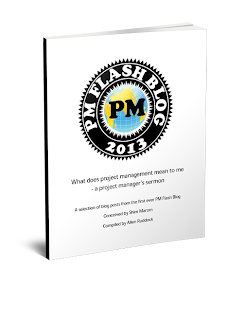The playing field is not level; there are asymmetries all around. Life is not fair, etc
The news, if it is news, is how asymmetry has crept into the project office or project management generally
- Not an efficient environment, meaning everyone does not have all the same information to make decisions. Some have access to 'big data' results; others do not
- Price does not reflect marginal cost, meaning that project labor, at least, doesn't reflect a broad market cost for the next unit of labor; rather, labor is often paid a premium wage, justified as an investment in quality
- Deals are blocked because of information asymmetry; opportunities go unfulfilled
- Risks are assumed where risks may not exist, thus putting one project office in a disadvantage compared another PMO with a better handle on the situation. Why? Lack of credible information. Some have it; some do not.
- Advertising ... sometimes called "signaling" -- distorts value, or redirects it. A PMP, college degree, or other certification may create value for the certificate holder, but does it create value for the employer?
Perhaps. But, there's a value-asymmetry at work. How many worthless, or more kindly worth-less-to-the-employer, PMPs are there who have the certificate, etc and thereby command the premium?
George Akerlof also wrote a book, "The Market for Lemons", in which he applied the 1970 used car market as example of the application of asymmetric information and the value distortions therefrom. Nobel prize. Anyone who has bought a used car understands this asymmetry between buyer and seller .... lemon or not? Only the buyer knows
And then, to layer on some more stuff, we have these:
- Regulatory and statutory limitations on information sharing
- Moral hazards (distortion of incentives or rewards)
- Behavior ... are interests aligned? How can you even tell if information is asymmetric and the relationship is not efficient?
Read in the library at Square Peg Consulting about these books I've written
Buy them at any online book retailer!
Read my contribution to the Flashblog

